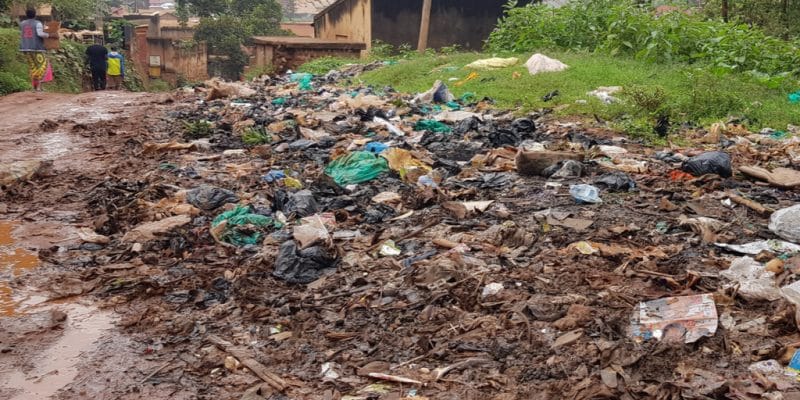The World Wildlife Fund (WWF) in Uganda is leading a campaign against the uncontrolled disposal of plastic waste by the population. Through the 2022 edition of the "Earth Hour" initiative, the international organization wants to make Uganda a cleaner country.
Uganda is the scene of a fierce battle against plastic pollution. This is necessary because at least 51% of the 600 tons of waste produced every day ends up in the environment because it is not taken care of. This is one of the many reasons behind the launch of “Earth Hour” 2022, the campaign led by the World Wildlife Fund (WWF) in Uganda, whose mission is to encourage people to change their mindsets.
Read also- AFRICA: the continent tackles the tide of waste that stains the environment
The campaign will also help Ugandans rethink plastic not as a waste product, but as a resource. “We continue to harm nature through irresponsible practices such as the indiscriminate use of plastics and the thoughtless disposal of plastic waste. This is one of the main causes of environmental degradation in the world today,” says David Duli, WWF’s director in Uganda.
The development of a circular economy
The international organization will also have to convince Ugandan companies and organizations involved in the plastic value chain to reduce their use by signing a “commitment card”. In addition, these actors will themselves have to take responsibility for the waste generated in the course of their activities.
The shift to the circular economy is finally proving to be essential in Uganda, given the consequences of plastic pollution in the East African country. Many bodies of fresh water are already paying the price, with the death of animals and the drastic reduction of people’s livelihoods. This is the case of Lake Victoria, where 20% of species are threatened with extinction according to a 2018 report by the International Union for Conservation of Nature (IUCN). Among these threatened species, 204 (76%) would be endemic to the lake, which means that their disappearance from this important body of water induces their permanent disappearance from the planet.
An annual event
In addition to this, there are risks for the populations to contract carcinogenic diseases following the ingestion of microplastics.
Uganda is not the first country to participate in the Earth Hour campaign, an initiative in which more than 190 countries take part every year. In 2020, in Kampala, Uganda’s Minister of State for the Environment, Beatrice Anywar, also urged people to use Earth Hour to put the challenge of plastic pollution at the center of national and international conversations. Two years later, the results are still hard to see.
For the Earth Hour 2022 campaign in Uganda, environmental advocates are demanding the immediate implementation of the National Environment Regulations 2020 and the National Environment Act 2019, which require the private sector to collect the plastic waste it discards.
Inès Magoum







